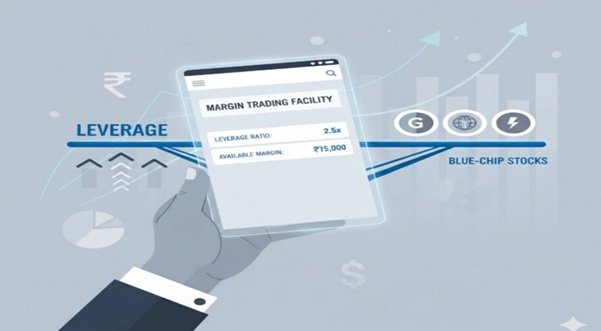Online trading has transformed the way people invest and trade in financial markets. Gone are the days when investors had to rely solely on stockbrokers or physical trading floors. Today, with just a smartphone or computer and a stable internet connection, anyone can buy and sell stocks, mutual funds, bonds, commodities, or even cryptocurrencies from the comfort of their home. While online trading offers many benefits, it also comes with its own set of risks and drawbacks. In this blog, we will explore the key advantages and disadvantages of online trading to help you make informed decisions.
Advantages of Online Trading
1. Convenience and Accessibility
One of the biggest advantages of online trading is convenience. Traders can access their accounts anytime and from anywhere. Whether you are at home, at work, or traveling, you can execute trades in real-time with just a few clicks. This level of accessibility allows investors to react quickly to market changes.
2. Cost-Effectiveness
Traditional trading often involves higher fees because of middlemen and commissions charged by brokers. Online trading platforms typically offer lower brokerage fees, making it more cost-effective for investors. Many platforms even offer commission-free trading for certain assets, making it affordable for beginners.
3. Instant Transactions
With online trading, transactions are fast and seamless. You can buy or sell shares within seconds, which is crucial in volatile markets. This instant execution allows traders to take advantage of opportunities quickly, something that was not always possible with offline trading.
4. Access to Research and Tools
Online trading platforms often provide analytical tools, market news, charts, and educational content to help traders make informed decisions. Investors can easily track their portfolio performance, analyze stock trends, and even use advanced tools like technical analysis without extra cost.
5. Better Control Over Investments
Online trading gives investors full control over their transactions. Unlike traditional trading, where you may need to wait for a broker’s approval or advice, online platforms allow you to execute trades independently. This empowers individuals to take charge of their investment strategies.
6. Wide Range of Investment Options
Most online platforms offer access to multiple financial markets, including stocks, forex, commodities, exchange-traded funds (ETFs), and cryptocurrencies. This variety allows investors to diversify their portfolios easily and explore multiple avenues of income generation.
7. Transparency
Online trading platforms provide clear details on transaction history, brokerage charges, and real-time portfolio updates. This transparency helps investors track their money efficiently and avoid hidden fees or discrepancies.
Disadvantages of Online Trading
1. Risk of Loss Due to Volatility
While online trading provides quick access to markets, it also exposes investors to rapid market fluctuations. Prices can change within seconds, and without proper strategies, traders can incur significant losses. Beginners who act impulsively may face bigger risks.
2. Technical and Connectivity Issues
Online trading depends heavily on technology. Poor internet connections, server downtime, or technical glitches on platforms can result in failed or delayed transactions. In fast-moving markets, such delays can lead to missed opportunities or financial losses.
3. Overtrading and Emotional Decisions
The ease of trading online can sometimes lead to impulsive or frequent trading. Emotional decisions driven by fear or greed often result in losses. Without discipline and a proper trading plan, many traders end up overtrading, which erodes profits.
4. Security Concerns
Cybersecurity threats are a major drawback of online trading. Hacking, phishing, and identity theft can compromise personal and financial information. While most platforms use advanced encryption, the risk of cybercrime can never be completely eliminated.
5. Lack of Professional Guidance
Unlike traditional trading, where brokers offer advice, online trading often requires self-research. Beginners without proper knowledge or guidance may make poor decisions that lead to losses. This lack of human interaction can be a disadvantage for those who rely on expert advice.
6. Hidden Costs
Although online trading is generally cost-effective, there may be hidden fees such as account maintenance charges, withdrawal fees, or inactivity charges. Without reading the terms carefully, investors might find themselves paying more than expected.
7. Addiction and Stress
The fast pace of online trading and the potential for quick gains can lead to addictive behavior. Constantly monitoring market movements can also increase stress and anxiety, especially during volatile periods. Over time, this can affect mental well-being and financial stability.
Tips for Safe and Smart Online Trading
To maximize the advantages and minimize the disadvantages of online trading, here are some practical tips:
- Educate Yourself: Understand market basics, trading tools, and risk management strategies.
- Start Small: Begin with smaller investments until you gain confidence and experience.
- Use Reliable Platforms: Choose platforms with strong security measures and good customer support.
- Set a Budget: Trade only with the money you can afford to lose.
- Stay Disciplined: Avoid emotional trading and stick to your strategies.
Conclusion
Online trading has revolutionized the way individuals interact with financial markets. It offers unmatched convenience, lower costs, and greater control over investments. However, it also comes with challenges such as market risks, technical issues, and the potential for emotional decision-making.
By understanding both the advantages and disadvantages of online trading, investors can make informed choices and develop strategies that balance risk and reward. Whether you are a beginner or an experienced trader, approaching online trading with caution, discipline, and continuous learning is the key to long-term success.









